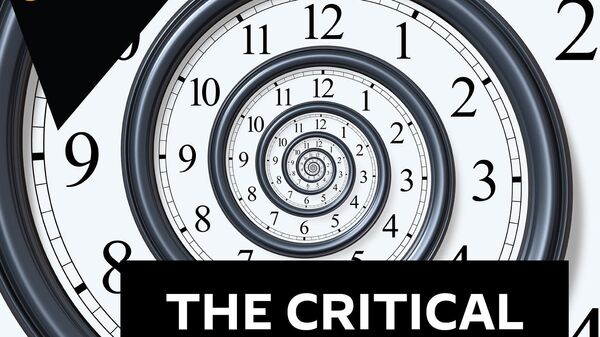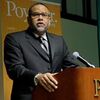Members of Trump’s team Pat Cipollone and personal Trump attorney Jay Sekulow told some untruths. Two examples: Cipollone at one point complained that “not even [House Intelligence Committee chair and impeachment manager Adam] Schiff’s Republican colleagues were allowed into the SCIF,” or Sensitive Compartmented Information Facility, which is basically the secure facility that members of Congress used to review classified information pertinent to the impeachment inquiry. Not only did Republicans involved in the impeachment have access to the SCIF, but many of them also used it.
During Sekulow’s opening statement he claimed House Democrats delayed transmitting the articles of impeachment to the Senate for a longer period of time than was actually the case and mischaracterized the impeachment process (he said Trump “was denied the right to cross-examine witnesses” during the House inquiry when, in fact, the White House declined to do so).
We know that the president won’t be found guilty and removed by the Senate but this is really about the court of public opinion. Will this in the long run hurt the president’s case in the court of public opinion?
A former lead investigator from the Organization for the Prohibition of Chemical Weapons (OPCW) has spoken out at the United Nations, stating in no uncertain terms that the scientific evidence suggests there was no gas attack in Douma, Syria in April 2018.
What’s the significance of this?
In Whitney Webb’s recent Mint Press News article she writes, “Since the U.S. killed Iranian General Qasem Soleimani and Iraqi militia leader Abu Mahdi al-Muhandis earlier this month, the official narrative has held that their deaths were necessary to prevent a vague, yet allegedly imminent, threat of violence towards Americans, though President Trump has since claimed whether or not Soleimani or his Iraqi allies posed an imminent threat “doesn’t really matter.”
While the situation between Iran, Iraq and the US appears to have de-escalated substantially, at least for now, it is worth revisiting the lead-up to the recent US-Iraq/Iran tensions up to the Trump-mandated killing of Soleimani and Abu Mahdi al-Muhandis in order to understand one of the most overlooked yet relevant drivers behind Trump’s current policy with respect to Iraq: preventing China from expanding its foothold in the Middle East.
GUESTS:
David Schultz — Professor of political science at Hamline University.
Joe Lauria - the Editor-in-Chief of Consortium News.
Mark Sleboda — International affairs and security analyst.
Whitney Webb — Staff Writer at MintPress News.
We'd love to get your feedback at radio@sputniknews.com



